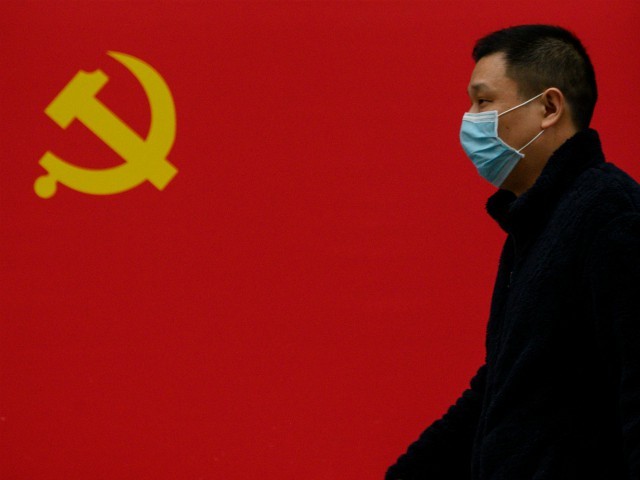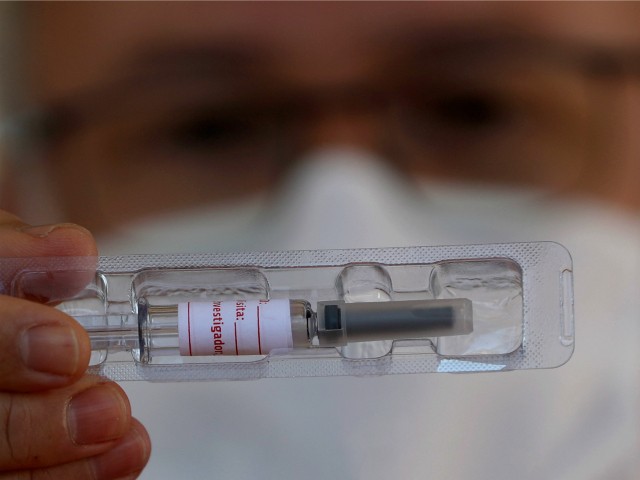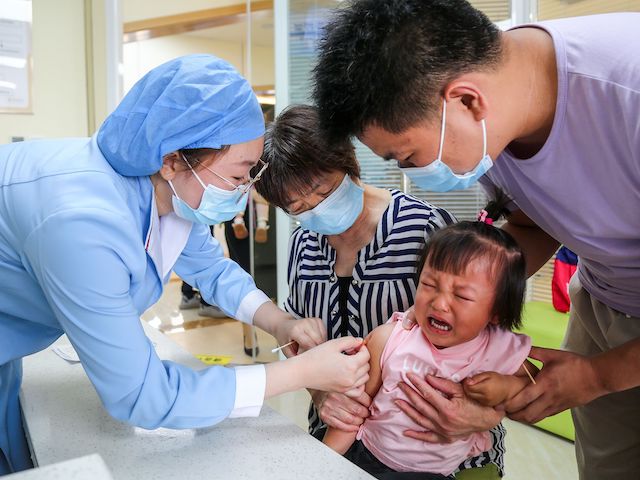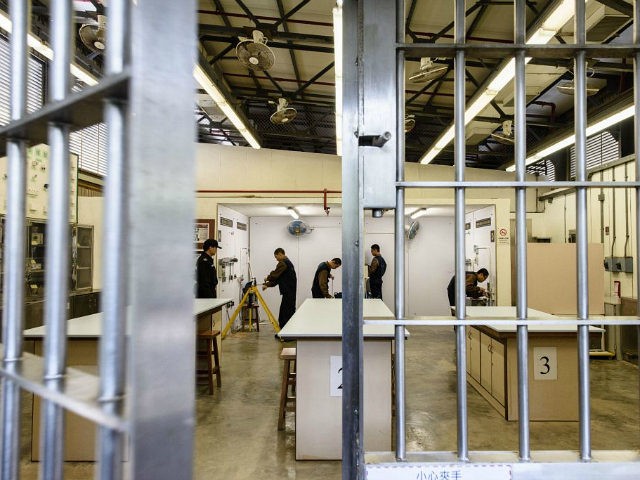Chinese police detained Jiang Yanhong, a 44-year-old single mother living in China’s central Henan province, this weekend after pleading with local officials to investigate the death of her 12-year-old daughter Li Boyi, who died in August after receiving a coronavirus vaccination.
Jiang Yanhong and her sister Jiang Yanchao were arrested on Communist China’s all-purpose charge of “picking quarrels and provoking trouble” when she demanded a better explanation for the death of her child. Police reportedly warned her in September that they would arrest her if she kept asking questions.
Li Boyi was given her first shot of an unspecified coronavirus vaccine on August 10. She became severely ill two days later and died on August 28. The hospital that treated her ruled her death was the result of “septic inflammation” that had nothing to do with her vaccination.
Jiang was unwilling to accept that explanation, so she demanded an investigation by the regional medical board, and when the board did not reply, she took her complaint to Communist Party officials in Beijing.

A man wearing a face mask as a preventive measure against the coronavirus walks past a Communist Party flag along a street in Wuhan in China’s central Hubei province on March 31, 2020. (Noel Celis/AFP via Getty Images)
That was evidently the step that angered the local officials who had her arrested when she returned home, especially since the intrepid mom made her trip during China’s National Day holidays, on the eve of a major session of the Chinese Communist Party’s (CCP) Central Committee.
“It is even more complicated now with the issues of prevention and control for the Covid-19 [Chinese coronavirus] pandemic. Any claims that the death may be related to vaccination would also make it a very sensitive case,” a lawyer in Henan explained to the South China Morning Post (SCMP) on Tuesday.
The “issues of prevention and control” the lawyer mentioned would pertain to the persistent outbreaks of Chinese coronavirus in Henan, which complicate the Communist Party’s narrative that it swiftly and completely eradicated the Wuhan coronavirus last year.
Li Boyi’s death could also complicate China’s “vaccine diplomacy,” which has been running into trouble as foreign customers conclude China’s vaccines are less effective than Western alternatives.
Brazil, for example, suspended distributing 12 million doses of China’s Sinovac product in September due to quality control concerns, while Thailand announced on Monday it would stop using Sinovac after its current inventory of the shots is depleted.

Dr. Gustavo Romero, of University Hospital of Brasilia’s Nucleus of Tropical Medicine, presents to the press China’s Sinovac Biotech experimental vaccine for the new coronavirus before it is administered to volunteers in Brasilia, Brazil, August 5, 2020. (AP Photo/Eraldo Peres)
Some non-Chinese medical experts have suggested China’s shots should not be used at all, or should be mixed with other vaccines, while others say the massive number of vaccines produced by Chinese factories should not be wasted given the huge demand for vaccines in developing nations. Even the more optimistic foreign medical experts concede that China’s vaccines appear to provide less coronavirus protection initially, and their benefits fade more quickly than Western products made with newer technology.
Chinese vaccine producers continue to insist their products are safe for children, including those much younger than Li Boyi. Human rights advocates worry that safety information from an authoritarian regime noted for making dissidents vanish cannot be trusted.
Human Rights Watch noted that another anguished mother whose daughter died of a strange neurological condition after getting vaccinated “forcibly disappeared” exactly one year ago. Vaccine safety scandals in China long predate the Wuhan coronavirus outbreak, and the Communist Party has a history of making the scandals go away by making the complainers go away:
In October, the authorities in Henan province forcibly disappeared He Fangmei, an outspoken critic of Chinese vaccine companies following her daughter’s diagnosis with a neurological disease after she received vaccinations. He, who was pregnant at the time of her disappearance, has not been heard from since. In January, shortly before WHO experts arrived in China to investigate the origin of Covid-19, Shanghai authorities also forcibly disappeared Hua Xiuzhen, a vaccine safety advocate whose adult daughter developed a neurological disorder after receiving a rabies vaccine in 2014.
In 2018, a court in Henan province sentenced vaccine safety activist Zhang Da’e to two years in prison for “picking quarrels and provoking trouble.” After being given a vaccine at the local government-run epidemic prevention center in Henan province, Zhang’s granddaughter was diagnosed with a brain injury and other illnesses. Though Human Rights Watch is unable to verify the causes of these illnesses, the families all believe they are a result of faulty vaccines.
While there have not been publicly known cases of recipients of the Chinese Covid-19 vaccines suffering severe side effects, the authorities censored online posts raising questions about the safety of the vaccines,” HRW noted in March.
Last month HRW denounced China’s “use of force and coercion to drive up its Covid-19 vaccination rate,” and suggested the Communist Party resorted to such methods because so many of its citizens “resist Chinese-made vaccines as a result of recurring vaccine scandals.”

This photo, taken on June 1, 2020, shows a child receiving a pneumococcal conjugate vaccine at a community healthcare center in Zhengzhou in China’s central Henan province. (STR/AFP via Getty Images)
“Sinopharm and Sinovac, whose COVID-19 vaccines have been approved by WHO, were reportedly involved in some of the scandals,” HRW pointed out.

COMMENTS
Please let us know if you're having issues with commenting.